- Have your assignments done by seasoned writers. 24/7
- Contact us:
- +1 (213) 221-0069
- [email protected]


How to Use Personal Experience in Research Paper or Essay
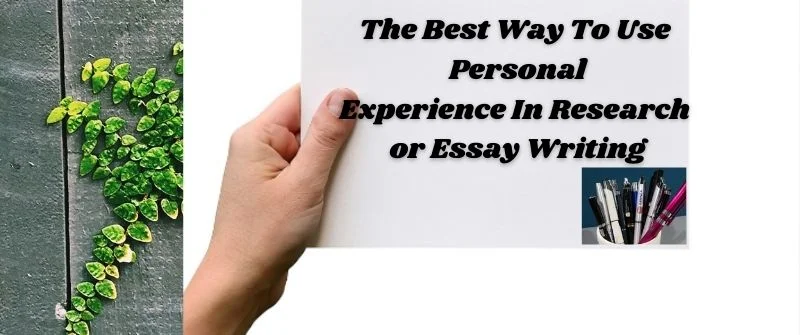
Personal Experience In Research Writing
Personal experience in academic writing involves using things that you know based on your personal encounter to write your research paper.
One should avoid using personal experience to write an academic paper unless instructed to do so. Suppose you do so, then you should never cite yourself on the reference page.

Some instructions may prompt you to write an essay based on personal experience. Such instances may compel you to write from your personal knowledge as an account for your past encounters over the same topic.
Can you Use Personal Experience in an Essay?
In most of the essays and papers that people write, it is highly recommended that one avoids the use of first-person language. In our guide to writing good essays , we explained that the third person is preferred for academic work.
However, it can be used when doing personal stories or experiences. But can is it possible?

In practice, you can use personal experience in an essay if it is a personal narrative essay or it adds value to the paper by supporting the arguments.
Also, you can use your personal experience to write your academic paper as long as you are writing anything that is relevant to your research.
The only harm about such an essay is that your experience might sound biased because you will be only covering one side of the story based on your perception of the subject.
Students can use the personal story well through a catchy introduction.
Inquire from the instructor to offer you more directions about the topic. However, write something that you can remember as long as you have rich facts about it.
People Also Read: Can Research Paper be Argumentative: How to write research arguments
How to Use Personal Experience in a Research Paper
When you are crafting your easy using your personal experience, ensure you use the first-person narrative. Such a story includes the experiences you had with books, situations, and people.
For you to write such a story well, you should find a great topic. That includes thinking of the events in your life encounters that can make a great story.
Furthermore, you should think of an event that ever happened to you. Besides, you can think of special experiences you had with friends, and how the encounter changed your relationship with that specific person.
The right personal experience essay uses emotions to connect with the reader. Such an approach provokes the empathic response. Most significantly, you can use sensory details when describing scenes to connect with your readers well.
Even better, use vivid details and imagery to promote specificity and enhance the picture of the story you are narrating.
Structure of the Essay
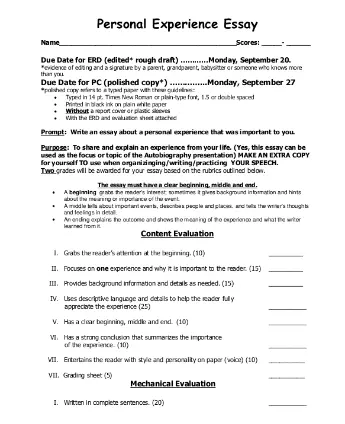
Before you begin to write, brainstorm and jot down a few notes. Develop an outline to create the direction of the essay story.
Like other essays, you should use the introduction, the body, and a conclusion. Let your introduction paragraph capture the reader’s attention.
In other words, it should be dramatic. Your essay should allow the audience to know the essence of your point of view.
Let the body of this essay inform the reader with clear pictures of what occurred and how you felt about it.
Let the story flow chronologically or group the facts according to their importance. Use the final paragraph to wrap up and state the key highlights of the story.
Make it Engaging
The right narrative needs one to use interesting information engagingly. Record yourself narrating the story to assist you in organizing the story engagingly. Furthermore, you are free to use dialogue or anecdotes. For that reason, think about what other people within your story said.
Moreover, you should use transition words for better sentence connections. Again, you should vary the sentence structures to make them more interesting. Make the words as lively and as descriptive as possible.
People Also Read: Can Research Paper Use Bullet Points: when & How to Use them
The Value of Personal Experience
We use personal experience to connect your artwork with your readers since they are human and they would prefer real stories. You will become more realistic when you describe emotions, feelings, and events that happened to you.
Your wealth of personal experience in a specific field will offer you a great advantage when you want to connect all the facts into a useful story.
People Also Read: What is a Background in an Essay: Introducing Information
Reinforcing your Writing Skills
Some students may have brilliant ideas and fail to capture them on paper properly. Some seek to write personal issues but also want to remove first-person language from their writing. This is not good.
However, you can sharpen your writing skills in this aspect. One can use the following tips to make your personal research paper readable and more appealing:

1. Sharpen grammar
The readability and clarity of your content will rely on grammar.
For that reason, you should polish your spelling, grammar skills, and punctuation daily.
Moreover, you should practice regularly and make the essay more appealing.
2. Expand Vocabulary
It can be helpful if you expand your vocabulary to describe your events successfully. Using better word choice enable the writer to connect with the topic well.
3. Have a Diary
Having a personal diary helps you by boosting your memory about past memorable events. That ensures that you do not lose hold of something important that happened in your past encounter.
4. Systematize it
Make your narration appear systematic to improve the flow. For example, you can divide your experiences in particular importance, emotions, events, people, and so on.
5. Interpret your feelings
It is not a walkover for one to remember every feeling he or she encountered when particular events happened. One should try to analyze and interpret them for better and more effective delivery when writing about personal experiences.
Can you Cite yourself or Personal Experience?
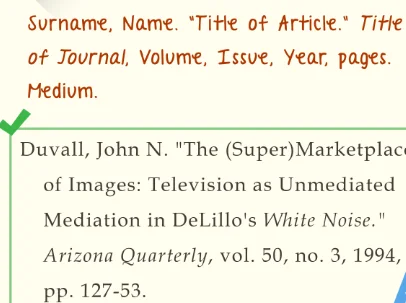
You cannot cite yourself or reference your personal experience because it is your own narration and not data, facts, or external information. Ideally, one does not need to cite personal experiences when using any writing style whether APA or MLA.
It will be unprofessional if you cite yourself in your research paper. Such an experience is your voice which you are bringing to the paper.
Choose the relevant essay based on your essay.
People Also Read: Best Research Paper Font and Size: Best Styles for an Essay
Instances when to use Personal Experience in a Research Paper
There are many instances when you have to apply personal narrations in an essay. In these instances, the use of first language is important. Let us explore them.
1. Personal essays
You can use personal essays in academic writing to engage readers. It makes your writing to be credible and authentic because you will be engaging readers with your writing voice. Some stories are better told when given from personal encounters.
The secret lies in choosing the most relevant topic that is exciting and triggers the right emotions and keeps your audience glued to it. You can include some dialogue to make it more engaging and interesting.
2. Required by the instructions
Some situations may prompt your professor to offer students instructions that compel them to write a research paper based on a personal encounter. Here, you have to follow the instructions to the latter for you to deliver and earn a good score well.
One way of winning the heart of your professor is to stick to the given instructions. You should relate your past events with the topic at hand and use it to connect with your readers in an engaging manner.
3. Personal Research Report
When you are doing research that involves your personal encounter, you will have to capture those events that can reveal the theme of your topic well.
Of course, it is an account of your perception concerning what you went through to shape your new understanding of the event.
A personal research report cannot be about someone’s also experience. It states the details of what you encountered while handling the most memorable situations.
4. Ethnography Reports
Such a report is qualitative research where you will immerse yourself in the organization or community and observe their interactions and behavior. The narrator of the story must use his perception to account for particular issues that he may be tackling in the essay.
Ethnography helps the author to give first-hand information about the interactions and behavior of the people in a specific culture.
When you immerse yourself in a particular social environment, you will have more access to the right and authentic information you may fail to get by simply asking.
We use ethnography as a flexible and open method to offer a rich narrative and account for a specific culture. As a researcher, you have to look for facts in that particular community in various settings.

When not handling complex essays and academic writing tasks, Josh is busy advising students on how to pass assignments. In spare time, he loves playing football or walking with his dog around the park.
Related posts

Titles for Essay about Yourself
Good Titles for Essays about yourself: 31 Personal Essay Topics

How to Write a Diagnostic Essay
How to Write a Diagnostic Essay: Meaning and Topics Example

How Scantron Detects Cheating
Scantron Cheating: How it Detects Cheating and Tricks Students Use
Want to create or adapt books like this? Learn more about how Pressbooks supports open publishing practices.
11 Weaving Personal Experience into Academic Writing
Marjorie Stewart
“Warp and Weft” uses the metaphor of weaving to demonstrate one way of using personal and narrative writing within academic essays. Rather than debate whether narrative is appropriate for academic writing, it addresses the question of when is it appropriate and how it can be done effectively, focusing on helping writers decide when the use of personal experience is appropriate for their purpose, how to make personal experience and narrative pull its weight in the essay, and how the ability to incorporate personal experience can translate into the ability to incorporate research.
The essay is structured as an example of the use of personal experience as well as a how-to guide. “Warp and Weft” contains a discussion of three students who incorporated narrative in their essays in three ways: as a structural frame, as an example when the research topic and personal experience overlap, and as a tool for discovery. Students will benefit from the peer-written examples as well as the use of the personal in the essay itself.
Like many students, I worked my way through college with a retail job. [1] I was luckier than many of my classmates: I found a job at a hip little boutique called Rebecca: A Gallery of Wearable Art in the trendy part of town. We carried many styles of hand-made clothing, jewelry, and accessories, but our most important merchandise was that made by Rebecca herself. Rebecca was a weaver who made hand-woven clothing and scarves. Her loom took up half of the back room and she wove while I waited on customers. When one fabric came off the loom, Anne, the seamstress, would begin to cut and sew while Rebecca set up the loom for the next design. She created her patterns then transferred them into a computer program that told her how to thread the yarn onto the loom to produce the pattern. She threaded the warp, the yarn that runs lengthwise, onto the loom. The weft (formerly known as woof) was placed on bobbins that fed the shuttle. The act of weaving was moving the shuttle with the weft through the warp to create the weave.
So what, you might well ask. So what does this have to do with writing?
Many of you have been taught not to use the word “I” in your academic writing; not to include anything that does not directly relate to that mysterious thing called a “thesis statement;” and not to include anything personal in your writing. The opening of this essay has broken all of those so-called rules – it contains a personal story, told in the first person, that at first glance seems unrelated to the topic of writing. However, in this essay, I – yes, “I” – am here to help you step away from those rules and to use personal stories effectively in your academic writing.
The first consideration is whether using personal narrative is appropriate for your project. My story of working in Rebecca’s shop is useful here – it is intended to attract the attention of the readers and to establish and explain the extended metaphor of weaving. However, if I were writing an essay for my art history class about the evolution of weaving techniques and equipment, my story would seem out of place, as I only have experience with one step in that evolution, and that experience is of an observer rather than a participant.
Your composition professor will likely talk to you about the rhetorical situation of any piece of writing. Stated simply (perhaps too simply), the rhetorical situation – the writer, the audience, and the purpose of the writing – affects the way the message is presented. In my hypothetical art history essay, the narrative would confuse the reader as to the purpose of the project and distract from the actual message of the paper. Often in writing classes it seems that your audience is specifically your professor and secondarily, perhaps, your classmates. Given the essays you will read about in this chapter, imagine the larger audiences that the student writers might have been addressing. Consider carefully whether personal narrative belongs in papers you are writing for history, biology, or business classes.
In addition to your specific rhetorical situation, of course, you should always comply with your professors’ guidelines for each assignment. “No first-person narratives” is a clear statement that personal stories are not appropriate in that classroom.
However, once you have established that your narrative is appropriate for your purpose and audience, what next? It is my purpose to help you incorporate narrative effectively, and to do that, I will use examples from three of my students in a first-year course, a course designed to help writers bridge the gap between high school and college writing. I am also using the example of this essay itself. Consider my story about Rebecca. I am using her weaving, her design of warp and weft, as a metaphor for the kind of writing this essay is going to talk about. I will also use the story as a frame – talking about weaving in the introduction, the conclusion, and perhaps in the transitions.
Personal Story As Frame
Using a personal story as a frame for your essay can be an effective way to draw your reader into your ideas and then to help them reinterpret those ideas in the end. Perhaps, like me, you’re working in a retail job. Perhaps it’s in a big box store instead of my artsy boutique, and you’re wondering if you’d be happier somewhere else, or you’re thinking, please, hand-woven clothing? You sell electronics, important, functional electronics.
Just as I began with the story of my time at Rebecca, Lynn Z. Bloom began a conference presentation with a story from her classroom, and then commented, “Such stories, even brief ones, make us want to hear more, and to tell our own right back. They get us where they live. All writing is personal, whether it sounds that way or not, if the writer has a stake in the work” (1). One of my goals in telling the story of Rebecca is to make you want to hear more, and to make you want to tell your own. The human mind is a giant filing cabinet of stories, and when you hear one, you go to the appropriate file drawer – in this case R for Retail Employment – and pull out your own.
There are many stories in that drawer, however, and it’s important that you choose the right ones. Because my metaphor of writing as weaving is central to my topic, I haven’t included lots of other great stories that came out of my time at Rebecca. I didn’t talk about the great gyros we used to get from Mike and Tony’s across the street, or about how the changing nature of the neighborhood made Rebecca worry whether she had chosen the right location for the store, or about the great artists who came in for trunk shows of their work. I focused on the loom, the weaving. And as the framework for this essay, I consider the story of the loom to be the warp, the yarn threaded on the loom in advance. I will thread my shuttle with the examples of my students’ writing and weave them through.
The first example, Callie Harding’s “The Life of a Choir Director’s Child,” does the opposite. Her topic – the need for better education about religion in America – is the warp, and her childhood stories are woven though to show the reader how this topic became so important to her. Her stories give the readers context and help them connect with her.
Personal Story as Context
Telling a personal story can help your reader understand why you are writing about the topic you have chosen, and why you have come to care so deeply about it. Callie’s childhood experience of travelling from church to church where her parents worked as choir directors gave her an understanding of many religions, and she uses those stories to show how that has helped her be a more compassionate, thoughtful, and sensitive person.
Her paper starts this way:
When I was a child, I didn’t spend much time on playgrounds or with the backyard swing set. I didn’t look forward to dance class or soccer practice every week. Instead, most of my time was spent in the pews of a church with a My Little Pony figure that was weaving its way through a jungle of hymnals and pew Bibles. My playground was a cathedral with the somewhat harmonious voices from the volunteer choir echoing off the stone floor over the magnificent pipe organ. At the front of the choir was either my mother or father . . . Yes, I was the child of choir directors. (Harding 1)
Callie goes on to explain that her family moved from a non-denominational Christian church to a Jewish synagogue; the First Church of Christ, Scientist; a Catholic Church, and finally, a small Lutheran church. “What religion are we?” she asks. This is how she tries to answer her question:
My mother spent a while with the Hindu faith before marrying my father and converting to Mormonism. We are also deeply into our Native American background and practice their cultural and religious ceremonies. Add the fact that we had many friends from many religions and cultures and you can tell that I had one of the most openly religious households on the block. (Harding 1-2)
Callie then moves very nicely into her research on how to encourage religious tolerance through education. She contrasts her experience in a fundamentalist Christian high school to a school district in Modesto, California where all ninth graders take a semester-long world religion course. She writes about the importance of helping all children understand and celebrate diversity of religion and points to her own experiences as an example of the positive effect this has on them. As part of her research, Callie interviewed her mother about her diverse upbringing. While her mother called it a “happy accident,” she also explained to Callie how she stood up to her very Mormon father to make sure Callie and her sister were free to find their own beliefs.
As I was studying Callie’s essay, I took three highlighters and circled each paragraph: pink for Callie’s personal story; yellow for Callie’s presentation and discussion of her research, and green for the information from her interview with her mother. This is the result:
- Paragraphs 1-3 – Callie’s personal story
- Paragraphs 4-6 – discussion of research
- Paragraph 7 – Callie’s story
- Paragraphs 8-9 – discussion of research
- Paragraph 10 – Callie’s interview with her mother
- Paragraph 11 – Callie’s story
- Paragraph 12 – Callie’s interview with her mother
- Paragraphs 13-14 – Callie’s personal story
It wasn’t until I did that exercise with the markers that I realized how smoothly Callie had incorporated the three elements of her writing. As I’ve done in this essay, Callie framed her story with the personal. She also used it within the essay to focus and reflect on her research findings. Marking your essay the same way can help you see if you have the right balance between the personal and the more traditionally academic portions of your paper.
While Callie used her personal stories to provide context to the issue of religion in education, she also used her own background to show herself as an example of someone for whom a broad religious education proved beneficial. In “A Life Lost,” student Melynda Goodfellow used her personal story as an example.
Personal Story as Example
Melynda chose to write about teen suicide, certainly an important topic, but one that far too often leads to a patchwork of statistics and distant narratives, more a report than an essay with heart. Sadly, Melynda had reason to care deeply about her topic: her cousin Jared killed himself with an overdose of prescription pain medication.
Melynda started her essay with a simple story of a typical Friday night, getting ready to go the high school football game, where her brother would be playing in the band. This night, however, was special, because her cousin had just moved into town and her boyfriend would be meeting him for the first time. Choosing to open with a typical activity – going to the football game – but giving it special meaning was particularly effective for Melynda. I encourage writers to ask themselves the first Passover question: Why is this night different from all other nights? This is the question asked by the youngest child at the beginning of the Seder to start telling the story of the Passover. It also serves the beginning writer well: If this night, this football game, isn’t special in any way, then it isn’t the story to use in your essay. Melynda’s football game is different from all others because her cousin will be there to meet her boyfriend.
Although the atmosphere is festive, Melynda shows us with foreshadowing that this is not a typical Friday night lights story. She writes that Jared moved because “he wanted to get away from the lifestyle that he was living back home. He wanted a kind of fresh start.” She connects herself to the characters of her brother and her cousin through the band: she had been in band, her brother is performing with the band at the football game, and her cousin is excited about returning to school and joining the band himself. Throughout the narrative part of her essay, Melynda shows Jared as sad and desperate, yet looking forward to his fresh start.
Melynda tells the story in a straightforward, chronological way from the evening of the football game through her cousin’s death and funeral. Her use of personal experience is different from mine and Callie’s because the majority of her paper is that narrative. The structure of her paper is very different: where Callie went back and forth between the story and the research, Melynda began with the story and introduced the research at the end. The first three pages of Melynda’s six-page essay are the story of her friendship with Jared that fall, and how she becomes his confidant. Pages four and five are the story of how she heard of his death. It is only at the end of her essay that she introduces the statistics that show that suicide is “the third leading cause of death in people ages 15 to 24” (Goodfellow 6). Her conclusion, shortly after that statistic, reads:
I never in a million years would have thought something like this would happen in my family. I knew that mental health problems run in the family, but I believed everyone knew where to get help. We knew that suicide wasn’t an option and that we had each other if nothing else. As tragic as it may sound, this event brought our whole family back together. Any quarrels or grudges anyone had seemed to dissipate that day. Ironically, one of the things that Jared wanted the most was for the family to just forget their differences and get along. (Goodfellow 9)
This ending refocuses Melynda’s readers on the personal meaning of the impersonal statistic.
In his book Living the Narrative Life: Stories as a Tool for Meaning Making , Gian Pagnucci writes, “I think, actually, that stories can help us get at the truth even if there isn’t a firm truth to be had.” (51) And in Writing to Change the World , Mary Phipher says:
Research shows that storytelling not only engages all of the senses, it triggers activity on both the left and the right sides of the brain . . . . People attend, remember, and are transformed by stories which are meaning-filled units of ideas, the verbal equivalent of mother’s milk. (11)
Melynda works at getting at the true story of her cousin’s death, making meaning of it, even though there is no firm truth or solid meaning to be had there. The truth she arrives at, however, is more powerful than the “just the facts” approach because the story lingers with her readers in a way statistics can’t.
Another thing Melynda does that makes her essay different from mine, and Callie’s, is her inclusion of dialogue. I think she makes especially good use of it in her essay, something that is often difficult for writers at all levels. Here she shows us how she learned of Jared’s death:
“What is it?” I said when I picked the phone up. “It’s about time you answered your phone! I’ve been calling you for over an hour,” my mom said. “Well?” “It’s Jared. He’s in the hospital. He overdosed.” “Oh, my God . . . Is he okay? I’ll be right there. I’m leaving work now.” “No. Don’t come here. There’s nothing you can do. He’s dead.” (Goodfellow 4)
Recreating dialogue can be challenging – a year after her cousin’s death, can Melynda be certain that these were the exact words that she and her mother spoke? Probably not, but she can show her readers the tension in the moment – her mother’s anger that she didn’t pick up, her desire to be with Jared, and her mother’s postponing of the awful news. Dialogue also can be used to pick up the pace of the story – the light look of it on the page helps readers’ eyes move over it quickly, getting a lot of information from a few carefully-chosen words.
There are significant structural differences between Melynda’s essay and Callie’s. Callie’s is split almost evenly between personal experience and research; Melynda’s is about 85% personal story. The third student, Ethelin Ekwa, uses personal story in an even larger portion of her essay, which is entitled “Ethelin Ekwa: An Autobiography.” Although the title might lead you to believe that the essay is only, or just, or simply, personal narrative, Ethelin uses the story of her life to explore her ethnic heritage, her life as a single mother, and her determination to make the most of her artistic and musical talents. She tells the story of her life as a way of understanding her place in the world at the time of the writing.
Personal Story as Discovery
Ethelin’s essay can be seen as an example of Donald M. Murray’ beliefs about writing: “We write to think – to be surprised by what appears on the page; to explore our world with language; to discover meaning that teaches us and may be worth sharing with others …. . . we write to know what we want to say.” (3). Although my students always write multiple drafts of all of their essays, Ethelin wrote more than usual – at least four significant revisions before the final draft that she submitted in her portfolio. She was a frequent visitor at our writers’ center as she worked through the paper. Somewhere in an intermediate draft, she found her frame: a quotation from Ani Difranco’s song “Out of Habit:” “Art is why I get up in the morning.” That idea led her Ethelin to her conclusion: “I cannot imagine a day without the ability to create in unconventional ways” (Ekwa 9). In the eight and a half pages in between, she tells the story of her life.
In Callie and Melynda’s essays, there is a very clear separation between personal experience, research material, and the writers’ commentary on those elements. The weaving, to continue the metaphor, is done in larger blocks of color. Ethelin’s essay has a more subtle pattern. Every paragraph contains some detail of her life – where she was born, who her parents were, where she lived – but also has a reference to her life-long desire to be an artist. She talks about her work as a writer and poet; as a singer and musician; and as a photographer and visual artist.
Ethelin’s background is intriguing – her parents moved from Cameroon, West Africa to France and then to Texas, where she was born, the youngest of five children. She has lived in Europe and Africa, and she went to school in France and Cameroon. Here is how she introduces herself in the second paragraph:
My birth name is Ethelin Ekwa. I am also known as Obsolete by my artist friends and as Krysty by my close personal friends. I am an artist, a mother, a photographer and a lover of all things. I am an American-born citizen with Cameroonian and French origins. I am 30 years old and I currently reside in North Braddock. (Ekwa 1)
Ethelin’s identity is tied to her arts from the very beginning, and every story from her life is wrapped around those arts. When, at 22, she becomes a single mother, her priorities change, but she never gives up: “When I got pregnant, I put singing, painting, and drawing on hold . . . I had more pressing matters to take care of and there just was not time for art” (Ekwa 3). Soon, though, she tells us that she made a new friend who introduced her to digital photography, and by the time her daughter was two years old, she had her own photography business up and running.
While Melynda chose one special night to tell about at the start of her essay, Ethelin chose many events from her life, all of them important, life-changing events. Reading Ethelin’s essay, I can almost see Rebecca’s shuttle flying back and forth across the loom, the turn at each side another event that pulls Ethelin back into the world of art. When the weaver turns the shuttle at the edge of the warp, the weft creates a finished edge that prevents the fabric from fraying or unraveling called a selvage. The turns in Ethelin’s story create a sense that her life, which is sometimes unplanned and chaotic, still has something that keeps it from unraveling, and that something is her artistic nature.
Tying Up Loose Ends
The examples from my students’ essays can help you understand how to use personal experience in your academic writing. But how do you know when to use it? When is it acceptable and appropriate? Gian Pagnucci asserts, “Narrative ideology is built on a trust in confusion, a letting go of certainty and clarity that can ultimately lead to understanding” (53); that stories have a “piercing clarity” (17), and that “the drive to narrate experience is, if not instinctive, then at the very least quintessentially human” (41). He also warns that the academic world is not always welcoming of personal experience. I know many of my colleagues are not willing to trust in confusion – their entire careers, and even their lives, have been built on the quest for knowledge and certainty.
If your composition professor has asked you to read this chapter, it’s a pretty safe bet that you may use personal experiences in your writing for that class. Even in that setting, however, there are times when it is more effective than others. Using the examples of the essays I’ve quoted from and the guidelines given in the beginning of this chapter, here are some tips on when to use your personal experience in your essays:
- When, like Callie and Melynda, your experiences have inspired a passionate opinion on your topic
- When, like Ethelin, your personal experiences constantly point back to your central idea
- When, like me, your personal experiences provide a strong and extended metaphor for your subject
- When, like all of the writers, your personal experience provides a structure or framework for your essay
The expression “tying up the loose ends” comes from weaving and other fabric arts. When the yarn in the shuttle is changed, the new yarn is tied to the old at the selvage. Those threads are later woven into the fabric so that they don’t show, and so that the connection is tight. When your rough draft is done, it’s time to take the fabric off the loom and make sure your weave is tight. At that point, ask yourself these questions to be sure you are using your experience appropriately and effectively in your essay:
- What percentage of your essay is personal experience, and how does that match up with the nature of the assignment? Callie’s essay was written in response to an assignment that required more research than the one Ethelin was responding to, so it included less personal writing.
- Have you included only the personal stories that directly relate to your topic, your attitude towards your topic, or your controlling idea?
- Are your selvages tight? Do the moves you make between personal story and research and analysis make sense, or is the fabric of your essay likely to unravel?
- Is the resulting pattern appropriate to your project? Are you working in large blocks of color, like Callie and Melynda, or the subtler tweed of Ethelin’s essay?
I started this essay in Rebecca’s shop and tried to weave the metaphor inspired there through this essay. In the process, I realized another advantage to using personal stories in academic writing: I hadn’t thought about Rebecca and Anne, about Mike and Tony’s gyros, about the bright creative atmosphere in the gallery and in the neighborhood for a long time. Accessing those stories from the filing cabinet in my brain was inspirational. My stories from Rebecca are mostly fun or funny. Your stories, like mine and the writers quoted here, are a mix of light and dark, funny and serious. I encourage you to open the file cabinet and find the stories that will make your readers remember similar times.
Works Cited
Bloom, Lynn Z. “That Way Be Monsters: Myths and Bugaboos about Teaching Personal Writing.” CCCC 51st Annual Meeting, Minneapolis, MN, Apr. 2000.
DiFranco, Ani. “Out of Habit.” Ani DiFranco , Righteous Babe Records, 1990. Ekwa, Ethelin. “Ethelin Ekwa: An Autobiography.” 3 Aug. 2009. Composition and Language I, Art Institute of Pittsburgh, student paper.
Goodfellow, Melynda. “A Life Lost.” 3 Aug. 2009. Composition and Language I, Art Institute of Pittsburgh, student paper.
Harding, Callie. “The Life of a Choir Director’s Child.” 3 Aug. 2009. Composition and Language I, Art Institute of Pittsburgh, student paper.
Murray, Donald M. A Writer Teaches Writing . Rev. 2nd ed. Cengage, 2003.
Pagnucci, Gian. Living the Narrative Life: Stories as a Tool for Meaning Making . Heinemann, 2004.
Pipher, Mary. Writing to Change the World . Riverhead Books, 2006.
Teacher Resources for Weaving Personal Experience into Academic Writing by Marjorie Stewart
Overview and teaching strategies.
This essay is useful for faculty teaching the research-based essays that are frequently the concentration in a second semester composition course in a two-term first year writing sequence. Instructors who encourage a personal connection to the research topic will find this essay helpful in guiding students as to when and how they might use their personal narratives in their academic research essays.
The questions below are designed to stimulate discussion and to move students from thinking academically about this genre to delving into their own lives for experiences they are inspired to research and learn more.
Often the attitude towards personal narrative, held by teachers and students alike, is that it is a beginning genre and an ice breaker that is designed as a stepping stone to real or more important ways of writing. This essay instead subscribes to the theory that personal narrative is, as Gian Pagnucci says, “if not instinctive, then at the very least quintessentially human” (41). My experience working with students on this kind of essay is that they are eager to both tell their own stories and to research the issues that inform those stories.
- Marjorie Stewart claims that our minds are filing cabinets of stories. Do her stories, or the stories of her students, remind you of stories of your own? How does this chain of stories help us make sense of our experiences?
- Has there ever been a time when you wanted to include personal experience in a writing project but were discouraged or forbidden to by an instructor? Why did you feel the story was important? What might have motivated the instructor?
- Are their personal stories you are eager to include in an essay? What about stories that you would be uneasy revealing? How do you, and how do other writers, decide which stories they wish to share?
- Work with an essay, either assigned in class or one you are familiar with in which the author uses personal experience. Compare it to an article on the same topic with no personal writing. Which do your respond to more, and why? Does the personal writing help you understand the writer, or does it get in the way of your intellectual understanding of the topic?
Essay Resources
If you have a favorite example of a well-mixed narrative research essay, by all means, use it. If you are using a book with good examples, you might assign one as companion reading to “Warp and Weft.” I also recommend many essays published as creative nonfiction, especially those from The Creative Nonfiction Foundation, at creativenonfiction.org. One of my favorites is “Rachel at Work: Enclosed, A Mother’s Report” by Jane Bernstein, published in Creative Nonfiction and anthologized in their collection True Stories, Well Told .
- This work is licensed under the Creative Commons Attribution-NonCommercial-NoDerivatives 4.0 International License (CC BY-NC-ND 4.0) and are subject to the Writing Spaces Terms of Use. To view a copy of this license, visit http://creativecommons.org/licenses/by-nc-nd/4.0/ , email [email protected] , or send a letter to Creative Commons, PO Box 1866, Mountain View, CA 94042, USA. To view the Writing Spaces Terms of Use, visit http://writingspaces.org/terms-of-use . ↵
Weaving Personal Experience into Academic Writing Copyright © 2020 by Marjorie Stewart is licensed under a Creative Commons Attribution-NonCommercial-NoDerivatives 4.0 International License , except where otherwise noted.
Share This Book

- Walden University
- Faculty Portal
Using Evidence: Common Knowledge & Personal Experience
Common knowledge & personal experience.
Scholarly writing primarily relies on academic research as evidence. However, all writers bring previous knowledge to their writing, and Walden writers in particular might have years of experience in their field that they bring to their classroom writing. How to incorporate common knowledge and professional experience can cause confusion, since incorporating them inappropriately can create unintentional plagiarism .
- Writing About Common Knowledge & Personal Experience (video transcript)
Common Knowledge
Common knowledge is information or ideas that are widely known, accepted, and found in multiple places. Common knowledge is context dependent, meaning that something might be common knowledge to one audience but not another audience. If you are paraphrasing common knowledge , you do not need to cite that statement.
Let us look at a few statements and consider their context to see when they might be considered common knowledge:
| Statement | Context | Common Knowledge? |
|---|---|---|
| The world is round. | This statement is widely known in most contexts. | This statement usually common knowledge |
| President Barack Obama was a senator from Illinois. | This statement is widely known in many contexts, particularly in the United States. | This statement common knowledge within the United States, but it may not be in other contexts. |
| Frequent nurse handwashing reduces the spread of infection in hospitals. | This statement could be widely known in the nursing field, but may not be familiar to an audience outside of healthcare. | This statement common knowledge, depending on the context. |
| Alcohol-based sanitizer kills many but not all bacteria and germs, although it is still preferred over soap and water in hospitals (CDC, 2017). | This statement is most likely not widely known in most contexts. | This statement usually would be common knowledge and would require a citation. |
Always consider your context and the audience you are writing for when determining whether a statement is common knowledge. Accidentally including a statement without a citation because you think it might be common knowledge can result in unintentional plagiarism . Ask your faculty if you are not sure, as your faculty can help guide you on what your audience is for an assignment and whether a statement is common knowledge for that audience.
Professional Experience
Many Walden students come with years of experience in their field, and you may find yourself writing about and researching topics you have engaged with in the past. The passion for and experience with the topics you are studying is one great advantage Walden students have.
Professional experience can cause a problem when students rely too heavily on their experience with a topic in their scholarly writing. Scholarly writing is meant to be informed by and supported by academic research, and so professional experience should not be the primary evidence you use for your ideas in your scholarly writing.
In fact, relying on professional experience too much or not clarifying when you are using professional experience in your scholarly writing can lead to questions about plagiarism. If you are writing a paper about handwashing practices for nurses, and throughout your paper you do not cite any sources, your faculty my interpret this lack of citations as passive plagiarism : Your faculty may think that you’re using evidence from sources but you just didn’t cite those sources. Although you know these ideas are based on your professional experience, your faculty may not, leading to confusion and possible misunderstandings.
We know that how and when to incorporate professional experience can be confusing if you are new to academic writing, and often students do not realize their approach could cause confusion. To avoid these issues and possible misunderstandings around plagiarism, we recommend three strategies:
- Use and Cite Evidence : Ensure you are adequately supporting your scholarly writing with academic evidence that is cited.
- Contextualize Professional Experience: If you do use professional experience to support your ideas, make it clear from context that you are doing so. Use phrasing like, “In my experience as a teacher…” or “I have found in my 10 years at my organization…” . These signal phrases help the reader know that the ideas that follow are based on your professional experience.
- Contact Your Faculty: Contact your faculty if you are not sure if professional experience is appropriate to use in your assignment or how to do so. Professional experience is more appropriate in some assignments more than others (e.g., a reflection paper versus a literature review). Your faculty can best guide you on how and when to include professional experience.
Related Webinar Resource
- Previous Page: Using Evidence
- Next Page: Summary
- Office of Student Disability Services
Walden Resources
Departments.
- Academic Residencies
- Academic Skills
- Career Planning and Development
- Customer Care Team
- Field Experience
- Military Services
- Student Success Advising
- Writing Skills
Centers and Offices
- Center for Social Change
- Office of Academic Support and Instructional Services
- Office of Degree Acceleration
- Office of Research and Doctoral Services
- Office of Student Affairs
Student Resources
- Doctoral Writing Assessment
- Form & Style Review
- Quick Answers
- ScholarWorks
- SKIL Courses and Workshops
- Walden Bookstore
- Walden Catalog & Student Handbook
- Student Safety/Title IX
- Legal & Consumer Information
- Website Terms and Conditions
- Cookie Policy
- Accessibility
- Accreditation
- State Authorization
- Net Price Calculator
- Contact Walden
Walden University is a member of Adtalem Global Education, Inc. www.adtalem.com Walden University is certified to operate by SCHEV © 2024 Walden University LLC. All rights reserved.

How do I cite personal experiences in APA format?
Personal experiences and knowledge generally do not need to be cited in an APA references page or within the body (in-text citation) of your paper. Personal experience and knowledge is part of your voice; it is what you bring to your paper. If you use personal knowledge that is unusual or to make a statement that someone might question, however, you will want to find research to back your knowledge up. Read more in our answer on self-citing .
Personal communications . Frequently confused with personal knowledge and experience are personal communications (any information that is not retrievable, such as phone conversations, interviews, email, memos, and personal letters). Personal communications (interviews, conversations) need to be cited in-text, but not in the reference list. Click here to learn more.
- Last Updated Apr 05, 2024
- Views 78301
- Answered By Kerry Louvier
FAQ Actions
- Share on Facebook
Comments (0)
Hello! We're here to help! Please log in to ask your question.
Need an answer now? Search our FAQs !
How can I find my course textbook?
You can expect a prompt response, Monday through Friday, 8:00 AM-4:00 PM Central Time (by the next business day on weekends and holidays).
Questions may be answered by a Librarian, Learning Services Coordinator, Instructor, or Tutor.

- Request new password
- Create a new account
Doing Research in Counselling and Psychotherapy
Student resources, using personal experience as a basis for research: autoethnography.
Autoethnography is quite different from other genres of research, in being based in first-person writing and reflection on personal experience. Carrying out an autoethnographic study not only has the potential to contribute to the research literature – it can also be highly personally meaningful, and provide a distinctive vantage point from which it is possible to see other types of research in a fresh way.
To appreciate what is involved in autoethnographic research it is necessary to try it out on yourself. This set of reflexive writing tasks provide suggestions about how to make a start with this kind of process. It is not necessary to complete all the writing exercises, or to begin with the first one – better to scan through the options and engage with the ones that strike a chord.
Articles on ethical issues in autoethnographic research are available in the Chapter 5 section of these online resources.
Papers on engaging in autoethnographic inquiry
These papers on psychotherapeutic topics illustrate different styles of autoethnographic inquiry, and different writing techniques. When reading them, make notes about those elements of each paper that could be usefully incorporated into your own study, and these elements that would be inappropriate.
Douglass, B.G. & Moustakas, C. (1985) Heuristic inquiry: the internal search to know. Journal of Humanistic Psychology, 25, 39 – 55.
Heuristic inquiry was an important precursor of autoethnography – this article highlights aspects of the study of personal experience that are not always given enough emphasis in the contemporary autoethnographic literature
Chang, H. (2016). Autoethnography in health research: growing pains? Qualitative Health Research, 26, 443 – 451.
A useful discussion of current trends in autoethnography
Harder, R., Nicol, J. J., & Martin, S. L. (2020). " The power of personal experiences": post-publication experiences of researchers using autobiographical data. The Qualitative Report , 25(1), 238 – 254.
Autoethnographic work is personally highly revealing – this study explores how experienced autoethnographic researchers evaluate the impact this has had on them
Wall, S. (2006) An autoethnography on learning about autoethnography. International Journal of Qualitative Methods, 5, 146 – 160.
Wall, S. (2008) Easier said than done: writing an autoethnography. International Journal of Qualitative Methods, 7, 38 – 53.
Many researchers have found these papers – which tell the story of conducting an autoethnographic study – useful in terms of their own development
Exemplar autoethnographic articles
Asfeldt, M., & Beames, S. (2017). Trusting the journey: Embracing the unpredictable and difficult to measure nature of wilderness educational expeditions. Journal of Experiential Education , 40(1), 72 – 86.
Brooks, C.F. (2011). Social performance and secret ritual: battling against Obsessive-Compulsive Disorder. Qualitative Health Research, 21, 249 – 261.
Fox, R. (2014). Are those germs in your pocket, or am I just crazy to see you? An autoethnographic consideration of obsessive-compulsive disorder. Qualitative Inquiry , 20(8), 966 – 975.
Matthews, A. (2019). Writing through grief: Using autoethnography to help process grief after the death of a loved one. Methodological Innovations , 12(3), 1 –10 .
Stack Exchange Network
Stack Exchange network consists of 183 Q&A communities including Stack Overflow , the largest, most trusted online community for developers to learn, share their knowledge, and build their careers.
Q&A for work
Connect and share knowledge within a single location that is structured and easy to search.
Is it acceptable to use personal experience when opening in presentation of my thesis?
Is it acceptable to use personal experience when opening in presentation of my thesis as long as it is relevant and contribute to the presentation of the literature, justification or methodology of thesis?
I do not intend to reference or cite any of my experiences as a source, but rather, I am seeking to use my experiences to begin with the research story.
For instance,
"...I experienced event X and I observed event Y, which may potentially be manifestations of the phenomenon described in the thesis theory, with event A being a possible example of B and event C being an example of D.".
Something to this extent.
I've witnessed various thesis defenses and seen many presentations on Youtube. They gave me an idea of adding a "personal touch" to the presentation.
Please note that I'm referring to my thesis defense rather than the thesis itself which focuses strictly on the hypothesis, methodology and findings in third persons.
English is not my mother tongue. Please forgive any misspelling and inconsistencies.
- 1 My guess is this largely depends upon the culture of your program. What do other students do in your department? Also, what does your advisor think? I would ask them. – Richard Erickson Commented Oct 27, 2017 at 20:37
- 1 Thank you Richard! My supervisor is on the fence. He says I should play it safe. Maybe my narcissistic tendencies make me want to "stand out" because my colleagues' defenses have been (in my opinion) a bit dull and I saw some yawns here and there. I want to make a very enjoyable presentation without losing the point of my thesis and I believe that adding anecdotes and personal experience to the presentation will improve it greatly. – Gonzalo Sossa Uriarte Commented Oct 27, 2017 at 20:50
- Depends heavily on local factors and the format of your defense. Some places this would not be a problem, even your thesis could have such an opening. – Mark Commented Oct 27, 2017 at 21:13
- Rather than focus on yourself, I'm sure your research is interesting. I found the book Presentation Zen to be helpful making my talks more interesting. – Richard Erickson Commented Oct 27, 2017 at 21:53
- 2 @ssjjaca I don't think this question a duplicate because thesis defense is very different than literature review. – Nobody Commented Oct 28, 2017 at 2:23
I would say that it could be acceptable. It really depends on the context. If you are using it to explain why you became interested in the topic of your thesis, then it could add to the context and depth of the thesis. However, if you use it to support your thesis, I think you should avoid it. It will weaken your argument and could be off putting to your committee.
You must log in to answer this question.
Not the answer you're looking for browse other questions tagged thesis defense ..
- Featured on Meta
- Introducing an accessibility dashboard and some upcoming changes to display...
- We've made changes to our Terms of Service & Privacy Policy - July 2024
- Announcing a change to the data-dump process
Hot Network Questions
- English equivalent to the famous Hindi proverb "the marriage sweetmeat: those who eat it regret, and those who don't eat it also regret"?
- Mathematical Theory of Monotone Transforms
- Netgate 6100 Will Not Acknowledge Lastest Versions of pfSense (When Checking For Updates)
- Reportedly there are German-made infantry fighting vehicles in Russia's Kursk region. Has this provoked any backlash in Germany?
- Is Marisa Tomei in the film the Toxic Avenger?
- Wall of Fire: Taking damage multiple times by using forced movement on a target
- "Continuity" in a metric space
- Dark, cynical video game taking place in the medieval ages
- Has any international sports organizations [or their leadership] been subject to sanctions by some country?
- Litz Limitations
- Abrupt increase of evaluation time of MatrixExp
- In Norway, when number ranges are listed 3 times on a sign, what do they mean?
- Environment Variables related to GeoServer aren't being read, how do you enable environment and system properties on server status modules tab?
- Refereeing papers by people you are very close to
- Why do commercial airliners go around on hard touchdown?
- Who‘s to say that beliefs held because of rational reasons are indeed more justified than beliefs held because of emotional ones
- It was all he could do not to smoke
- What does "No camping 10-21" mean?
- Search values by priority in stream
- dealing with the feeling after rejection
- Simulation Lorenz83 Attractor
- Automatically closing a water valve after a few minutes
- How important is a "no reflection" strategy for 1 Hz systems?
- She's a black belt in judo
BASIL CAHUSAC DE CAUX
Forever Learning
- Mar 30, 2023

Combining research and storytelling: Using personal experiences as research data
I find it quite amusing that I would be writing this blog post to advocate for a research methodology as emotional and subjective as autoethnography. For over a decade, I was trained to conduct scientific research where objective answers were sought to solve problems. My research focused on examining a gene activated in athletes’ hearts to see if it could be a potential treatment for patients with heart failure. In this scientific lab-based environment, I had to ensure objectivity in my research so that I could help find a cure for heart failure. After completing my PhD, however, I ventured into humanities and social sciences and found that the research approach I had previously used would not work. In my new research space, I was interested in understanding people’s experiences, which meant embracing subjectivity.
Through my journey into qualitative research, I discovered the value of stories . As I have recently noted , I now believe that stories matter and that individual experiences should be valued. I also now advocate for researchers to allow individuals to tell their own stories, as they are the experts in their own experiences.
Researching personal experiences is becoming increasingly important as individuals’ stories are recognised as important sources of knowledge. Personal experiences can provide unique insights into social, cultural, and historical contexts and highlight the complexities of human experience. By researching personal experiences, we can uncover previously ignored or marginalised perspectives, challenge dominant narratives, and gain a deeper understanding of individual and collective identities. By valuing personal experiences as sources of knowledge, we can build more inclusive and diverse understandings of the world around us.
As I started researching personal experiences, I discovered a qualitative research method called autoethnography and soon realised its power . I now regularly recommend autoethnography to researchers. In particular, I often recommend it to PhD students to help them establish their research motivation and positionality in their thesis and more effectively engage in reflexivity during their research project. A well-written autoethnography can also be published, which helps these early career researchers by giving them the opportunity to build their publication record.
The rest of this blog post will explore autoethnography as a methodology. The information in this blog comes from my recently published book chapter, “ A Harmony of Voices ”. This book chapter was the methodology for our book Research and Teaching in a Pandemic World , where we used a form of autoethnography to allow PhD students, early career researchers, and more established researchers to tell the stories of their experiences during the COVID-19 pandemic. Using this methodology helped us show that the pandemic significantly affected the academic identity development of students and staff in higher education.
There are five main reasons why I think autoethnography is such a powerful qualitative research methodology.
1. Autoethnography requires researchers to purposely explore personal experiences to understand a particular culture or society. For example, I was recently able to use autoethnography to delve into a doctoral student’s journey as she discovered she was mentally unwell and link this with my experiences as a doctoral educator. By valuing the student’s knowledge of her mental illness and my understanding of the doctoral education system as a cultural insider, I was able to show how the culture of academia can contribute to the academic mental health crisis . Consequently, using autoethnography helped me demonstrate how educators can create more welcoming environments that help foster doctoral students’ wellbeing.
2. Autoethnography allows researchers to use personal experiences as data sources, narrating evocative stories and interpreting their significance. Researchers are also participants in their own studies, thereby valuing insider knowledge. The stories which are told often explore transformative experiences for the researcher, frequently taking the form of epiphanies that significantly influenced the author’s worldview. I believe that this allows researchers to provide more meaningful insights into complex phenomena compared with more traditional objective research methods. For example, I recently used Zoom to have a conversation with myself as I reflected on my past experiences (see Figure 1). During this reflexive Zoom conversation, I was able to delve into my personal experiences throughout my PhD , analyse my emotions and thoughts during that period, reflect on them presently, and determine how my previous experiences have impacted my current teaching philosophy and practice.

Figure 1. Screen capture of me having a conversation with myself on Zoom to collect data about my past experiences and how these influenced my current teaching philosophy and practice.
3. Autoethnography allows the researcher to use writing as a form of therapy for themselves and society more broadly. Researchers can give others hope and insight by engaging in this form of therapeutic writing. This can be seen, for example, in our book Wellbeing in Doctoral Education . In this book, several individuals used autoethnography to tell their stories of mental illness during their doctoral journey. Through their explorations of their own journeys, they were able to provide strategies for future students to maintain their wellbeing during their PhD.
4. Autoethnography empowers researchers as it allows them to embrace emotionality and uncertainty and highlight topics that may be considered hidden or taboo. Autoethnography allows researchers to connect with their own emotions and experiences and, in doing so, find their voice. It allows them to challenge the dominant narratives that often dominate research and to tell their own stories in their own words. It also allows them to connect with their research participants more authentically and meaningfully. By sharing their own experiences, they can create a space for others to share theirs, fostering a more equitable and inclusive research process. In this way, autoethnographers can advocate for social change to address perceived societal wrongs.
5. Autoethnography is a more accessible type of research for those outside of academia because it is written from personal experience in easy-to-understand language. The autoethnographer also does not merely narrate an experience for their audience. Instead, they try to engage the audience in the conversation so that the audience can understand experiences which may be different from their own.
Autoethnography, however, is not without its challenges. Some researchers critique it as a methodology because it is not scientific enough, while others say it is not artistic enough. I believe, however, that these critiques fail to see the value of combining both science and art when exploring complex phenomena. Autoethnography has allowed me to combine my scientific understanding of the research process with the ability to tell stories – both my own stories and those of my participants. In this way, I now see research writing as a way of communicating my findings to better understand myself and change the society in which I reside.
In conclusion, autoethnography has become an increasingly popular research methodology, particularly within the humanities and social sciences. Its emphasis on personal experiences, reflexivity, and storytelling allows for a deeper exploration of complex experiences and societies. While it may be a departure from more traditional scientific research methods, autoethnography allows researchers to learn about broader cultural and societal issues by exploring their personal experiences. As a researcher who was initially trained in a scientific environment, I can attest to the value of this approach, particularly when seeking to understand individuals’ experiences. Ultimately, by embracing the methodology of autoethnography, researchers can gain a deeper appreciation for the lived experiences of the individuals they are studying, leading to more nuanced and insightful research findings.
Acknowledgements
I want to thank Dr Jennifer Cutri for introducing me to autoethnography as a research methodology. I would also like to acknowledge Open AI , which I used to generate the initial structure of this blog post.
Recent Posts
[Commentary] Breaking the Intellectual Impasse: Metamodernism in SociologyAbstract
Trauma, anxiety, depression, solitude: The impact of COVID-19 on academic identity
Finding connections between the practice of Karate and the doctoral journal
- Have your assignments done by seasoned writers. 24/7. Contact us:
- +1 (213) 221-0069
- [email protected]

Can a Research Paper have Personal Experience or Narrative

_Personal Experience in essays
A research paper is a type of academic writing that has a comprehensive analysis, inquiries, and argument of a different research that is independent. Even though the paper has similarities with academic essays, it entails detailed assignments and is usually longer.
Through a research paper, lecturers are able to know the learner’s writing skills and their level of scholarly research. As a student, you ought to show a strong knowledge of the topic given. In addition, analyze all available sources, then put your own contribution to the discussion of the topic.

For a research paper to be complete, writers must understand the topic by analyzing the assignment sheet. If there is any confusion, seek clarification from the lecturer to know more about the assignment’s goal, the formatting specifications, the deadline, and how to submit it.
Can a Research Paper Have Personal Experience?
A personal experience can be included in your research paper as long as it is relevant to the research topic you are working on.
The main goal is to ensure that the reader will connect to an event of your own life experience. In this case, putting a personal experience into a research paper requires the use of descriptive language.
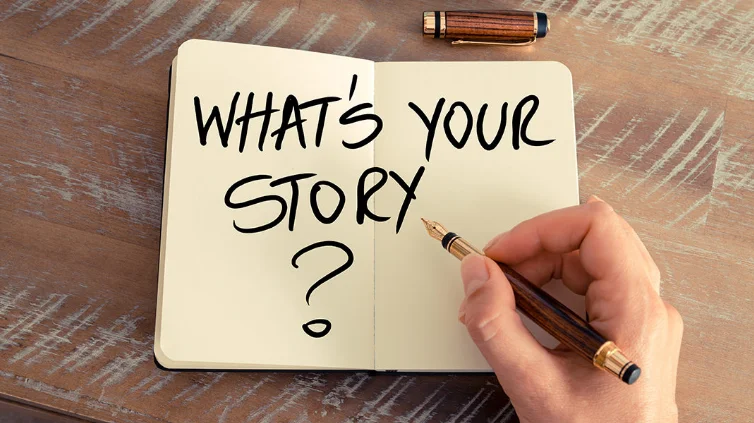
Including personal experience is beneficial to both the reader and the writer. For instance, the writer feels more confident and will better understand the paper.
As a writer, the experience you include will also create a stronger connection with the writing.
On the other hand, the experience in a research paper will make the reader have an exciting time and enjoy going through your work. He or she will view your research paper from an insider perspective.
As usual, a lecturer can find it boring to read dry theories with no sense of humour. By adding a personal experience, you spice up the monotony of the paper.
The concrete life examples you include in your paper as personal experiences can engage the reader and make your piece more interesting to reward.
You will have more confidence when writing a personal experience in a research paper. This is because you are writing down an issue you know or are going on in your life. It will be easier to get support and backup because you are writing about something you experienced.
It could be an event you noticed or past practices that have taken place in your workplace.
When is Personal Experience Needed in Essay Writing
As a student, you will face paper writing cases that will specifically require you to include your own opinions, ideas, and real-life experiences. Personal experience is necessary in the research process.
Use personal experience if you are dealing with an assignment that has precisely asked for the reflection. If there is a situation that will need you to exemplify a particular theory, a personal experience will make the writing have a perfect flow.
These are some of the appropriate instances and places in your paper that will need personal experience.
Writing a Personal Essay
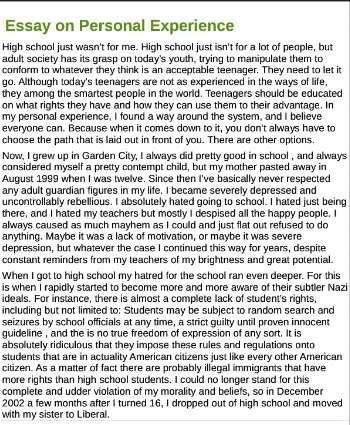
In order to effectively integrate your personal experience in your paper, always use the first-person point of view. This will help to connect with the reader directly.
In this way, your paper will be void of passive voice.
Also, you will avoid the chances of referring to yourself in a third-person perspective which can confuse the reader.
It is important to note that writing in the first-person language is not necessarily inappropriate if it is not opinionated or biased.
All you are required to do is stay on point and focus on experiences that are related to the assignment given.
Students are advised not to be too excited or get carried away about writing a personal experience so they do not go off-topic.
You can end up sharing more experiences than what was required in the assignment.
When it comes to the voice, be very objective and formal. A non-judgmental voice is very appropriate for a personal experience in a research paper.
Be formal and speak directly to the reader. Similarly, avoid sounding emotional even when giving an experience that may have bad memories or is affecting your life.
When writing a personal experience, it is also essential to remain open. You can consult different sources and viewpoints concerning your topic but make sure that your tone remains neutral.
How to Include a Personal Experience in a Research Paper
Primarily, it is important to choose a good personal topic that goes in line with the assignment you have been given.
Try to recall events in your life that can make a great story that depicts the research paper topic you have in hand. You can think of something you learned or a past event that happened to you.
Also, remind yourself of your special experiences with family members or friends.
The use of a personal story helps to draw the reader to the ideas you have included in the paper.
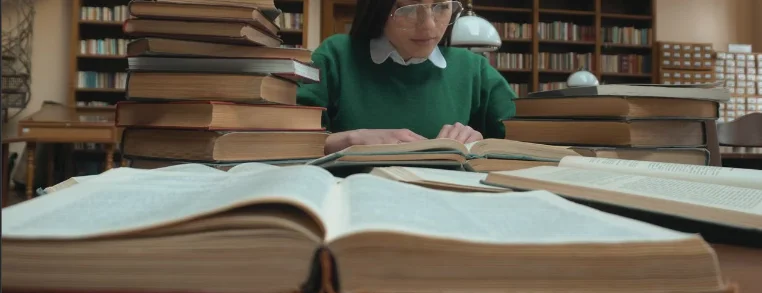
After ultimately finishing your personal experience story, citing is not necessary in your reference page.
This will make your work easier because even in-text citation in the article body is not necessary.
The experience you include is a life involvement and part of your voice and therefore does not need any citation.
You simply have to come up with your own experience; hence research or a source is unnecessary.
Below are brainstorming ideas you can use to come up with a good personal experience for your research paper:
- A past moment in the office or home when you were embarrassed.
- A major event that was small but very significant and life-changing.
- The sudden end of past relationships or events.
- A perfect relationship experience with a close person such as a parent, grandparents, or even friends.
- An encounter with a person who changed your life.
- The beginning of something new in your life
Instances When to Avoid Personal Narrative
Personal experience should not be used as evidence in your argument.
Curriculum theorists and even renowned researchers will not hesitate to give low grades on a paper that has personal experience used as evidence. All in all, that is the only area where using your own experience is discouraged in research writing.
Your personal feelings, beliefs, and experience can boost a student’s involvement in learning and have a better understanding of the subject matter.
The numerous advantages of including a personal experience in a research paper cannot be ignored. Your research paper will be accepted as long as you have followed all the guidelines provided.
Stylistic and linguistic grounds are among the reasons that can cause your paper to be rejected. A well-expressed personal experience, when put in a competently researched paper, will boost the chances of your manuscript being accepted for publication.
Students invest a lot of money, time, and effort in doing research, and it can be traumatizing and quite discouraging to have your paper rejected. As a student, writing a perfect research paper may be difficult, especially if you are doing it for the first time.
Revise your final research paper and ensure you choose the correct topic for a personal story. In this way, you will be able to create a good impression on your lecturer and boost your chances of earning higher grades.
Top-notch study papers portray a vivid picture of significant personal experiences that can move the reader and make the research paper more interesting.

James Lotta
Related posts.

How Edgenuity Checks for Plagiarism
Edgenuity Cheating: Detecting Cheating, Plagiarism and Tabs
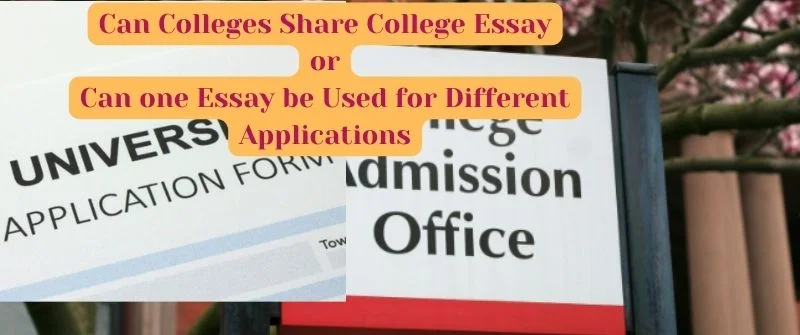
Do Colleges Share Essays
Do Colleges Share Essays: Can I Reuse for New Applications
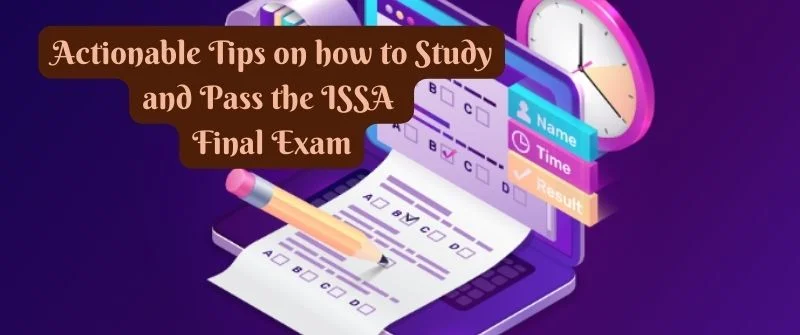
Passing ISSA Final Exam
Issa Final Exam Cheat Sheet: Tips to Study and Pass Issa
How can I use my own personal experiences as a reference in my research paper?
It is very tempting to want to use things that we know based on our own personal experiences in a research paper. However, unless we are considered to be recognized experts on the subject, it is unwise to use our personal experiences as evidence in a research paper. It is better to find outside evidence to support what we know to be true or have personally experienced.
If it is not possible to find outside evidence, then you will have to construct your paper in such a way as to show your reader that you are an expert on the topic. You would need to lay out your credentials for the reader so that the reader will be able to trust the undocumented evidence that you are providing. This can be risky and is not recommended for research based papers. But even if you do use your own experiences, you would not add yourself to your References page.
Sometimes you will be assigned to write a paper that is based on your experiences or on your reaction to a piece of writing, in these instances it would be appropriate to write about yourself and your personal knowledge. However, you would still never cite yourself as a source on your References page.
For assistance with APA citations, visit the APA Help guide.
Thank you for using ASK US. For further assistance, please contact your Baker librarians .
- Last Updated Oct 26, 2021
- Views 54079
- Answered By Baker Librarians
FAQ Actions
- Share on Facebook
Comments (0)
We'll answer you within 3 hours m - f 8:00 am - 4:00 pm..

Princeton Correspondents on Undergraduate Research
Tips for Writing about Your Research Experience (Even if You Don’t Think You Have Any)
If you’re someone who hasn’t yet done formal research in a university setting, one of the most intimidating parts of the process can be simply getting your foot in the door. Just like the way your options can seem very limited when applying for your first job, asking for a research position when you have no “experience” can seem discouraging — maybe even to the point of causing you to question whether you should apply in the first place. With that being said, there are some simple tips you can employ when applying for research positions to highlight the link between your existing interests and the work of the position for which you are applying.
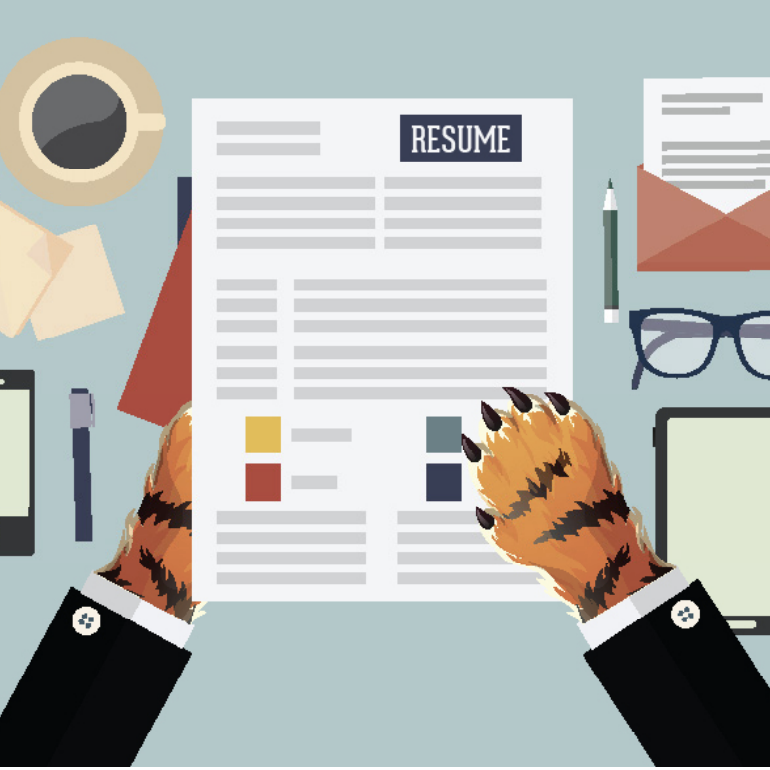
First things first: tailor not just your cover letter (for applications that ask for it) but your resume to the position for which you are applying. Even if you’re just sending a casual email to a professor to ask about the research that they’re doing, as a rule, it never hurts to attach your resume. I also like to think that submitting a resume even without being asked to shows that you’re serious about doing research, and have taken the time to put together a thoughtful inquiry into a position. If you’ve never written a cover letter or resume before, don’t fret. The Center for Career Development has some great online resources to help you create one from scratch. If you are looking for more individualized help, you can also schedule an appointment to get one-on-one feedback on your application at any stage in the writing process.
One of the things that I’ve found, however, is that the single-page format of a resume often isn’t enough space to include all of the information about every single thing you’ve ever done. Rather than trying to jam as many impressive accomplishments as you can onto a page, your goal should be to create a resume that gives a cumulative sense of your interests and experiences as they relate to the position for which you are applying. One of my favorite ways to do this is to create a “Research” section. “But Kate, what if I don’t have any research experience?,” you ask. Remember that paper you wrote about a painting by Monet in your favorite class last semester? Write the title down, or even a sentence or two that summarizes your main argument. The art museum you’re hoping to do research at will love knowing that your interest in their current exhibition on Impressionism is rooted in classes you’ve taken and the projects you’ve done in them, no matter how new you may be to a topic. Your interest in a specific research position has to come from somewhere, and your resume is an important part of demonstrating this to others.
What I would like to reassure you of is that it’s normal to be an undergraduate with very little research experience. The people reading your application —whether it be for an official program or even if it’s just a friendly email with a few questions— know that you are a student and will probably be excited to offer you guidance on how to get involved with more specific research projects even if all you have to offer at this point is enthusiasm for the topic. Working in a lab or with a professor on a research project is an opportunity designed to help you learn above all else, so it’s ok if you don’t know what you’re doing! It goes without saying that having little experience will make the final result of your research experience all the more worthwhile because of the potential to gain knowledge in ways you haven’t even imagined.
— Kate Weseley-Jones, Humanities Correspondent
Share this:
- Share on Tumblr


Academic Programs

- Tuition & Financial Aid

Student Experience
Let's chat best strategies to weave personal interviews into your paper.
You’ve searched through peer-reviewed journal articles. On your work table lies a tall stack of books you’ve accumulated from the expansive library shelves. You’ve bookmarked numerous e-books with helpful information for your research paper.
Yet it seems your aggregation of quality sources is still missing something to bring your paper to the next level of quality and authenticity.
That missing piece may just be quotes and information from a personal interview.
Personal interviews are considered primary research, meaning that you as the writer are collecting information right in the real world. Let’s find out what benefit they can add to your work.
WHY PERSONAL INTERVIEWS?
Primary research in the form of personal interviews gives an added layer of specialization to your accumulated information. Rather than applying your research topic to material you find, you begin with your research topic and discover information specifically relating to that topic.
Personal interviews, whether face-to-face, on the phone or over email, provide the opportunity for you to learn more about a particular topic and incorporate another credible source into your research paper.
TIPS FOR CONDUCTING THE INTERVIEW
Your first step is to find that credible source who you can talk to. Who you choose will obviously depend on your research topic—it may be a doctor, a lawyer, a business manager, a scientist, etc. But don’t just pick someone convenient with just a little bit of knowledge in some area. Select an interview subject that is credible, experienced and knows a lot about your research topic.
1) PREPARE FOR THE INTERVIEW
Before you dive into a personal interview, be prepared. Have a direction in mind for how the interview will go. It may be helpful to bring along your phone or some other device to record the interview. Think through what questions you want to ask and ensure those questions will help you in your research.
2) ASK YOUR INTERVIEWEE THEIR NAME AND OCCUPATION
Make sure you get this important information first so that you don’t forget. Ask her to spell her name so you don’t have to wonder if you got it right. Ask her to describe her occupation, daily work, experiences and any relevant certifications. Gathering this information will demonstrate the interviewee’s credibility on your research topic.
3) LISTEN AND FOLLOW-UP
Pay attention to what your interviewee is saying rather than trying to record her every word. If you don’t understand something she says, ask follow-up questions. Don’t only stick to your standard list of questions. Be open to take the conversation in a different direction.
INCORPORATE INTERVIEWS INTO YOUR PAPER
Now, you can use that valuable information to add credibility and support your research paper.
1) WEAVE CONTENT INTO YOUR PAPER.
The pages of quotes and information you’ve acquired can be used as direct quotes or paraphrases to support your main points.
As you look for what content from your interview to include in the paper, be sure those quotes or facts are relevant and add value to your main points. Just as in using content from a book or journal article source, information from interviews should be used as supplements to the content you write.
Also like book and journal article research, don’t take your interviewee’s comments out of context. Be sure his or her quote and intention match up. Maintain integrity when making decisions about what quotes to include where.
2) CITE YOUR INTERVIEW.
As you would with book or journal article sources, you’ll need to cite the information you’ve acquired from your personal interview. In writing, follow APA Style in determining what to include:
In-Text Citations
Like books and journal articles, include an in-text citation after you incorporate a direct quote or paraphrase into your research paper. Use the format:
(First initial. Last name, personal communication, Month Day, Year).
For example, if you spoke to an expert in business management practices name John Smith on Dec. 5, 2017, your citation would look like this:
Ex. (J. Smith, personal communication, December 5, 2017).
Block quotes
If you select a direct quote that is 40 words or more, arrange the content in a block quote format. A block quote means you indent a half an inch from the left margin for the entire quote. Don’t use quotation marks around the block quote. And, after the quote, include the in-text citation.
Weave in quotes
Similar to incorporating sources from books and journal articles, weave in quotes with your own content. This will make the paper flow and helps your reader know your sources.
Not in Reference List
Since your personal interview is not a published work, DO NOT include it in your Reference List at the end of your paper.
Personal interviews provide a unique level of specialized information that can really add value to your research paper. By incorporating best practices such as conducting the interview thoughtfully, weaving quotes in seamlessly and citing your source properly, you can bring your paper to the next level of quality and credibility.
At Cornerstone University, you’ll experience numerous academic support resources to equip you to succeed in your degree program, whether that’s in writing a paper or other assignment.
Discover Academic Support

Ellie Walburg
Ellie Walburg (B.S. ’17, M.B.A. ’20) serves as the admissions communications coordinator for Cornerstone University’s Professional & Graduate Studies division.
Related Posts

Revamp Your Studying With These Five Creative Strategies

Six Steps to Really Edit Your Paper

Top Five Grammar Mistakes You Shouldn’t Be Making
Want to learn more about cu, connect with cu.
- Student Life
- About Cornerstone
- University Offices
- Faculty & Staff Directory
Recent News
- Cornerstone Continues to Advance Growth Plans
- Enrollment Deadline Extended for Fall 2024 at Cornerstone University
- Free Tuition Expands Through the Cornerstone Commitment Grant for 2024/25
Get the Reddit app
This subreddit is for discussing academic life, and for asking questions directed towards people involved in academia, (both science and humanities).
Can I mention a personal experience in an APA paper?
I'm not going to mention my whole life story, but say something to the effect of "Having personal experience in this area, it would be a good fit for the field."
By continuing, you agree to our User Agreement and acknowledge that you understand the Privacy Policy .
Enter the 6-digit code from your authenticator app
You’ve set up two-factor authentication for this account.
Enter a 6-digit backup code
Create your username and password.
Reddit is anonymous, so your username is what you’ll go by here. Choose wisely—because once you get a name, you can’t change it.
Reset your password
Enter your email address or username and we’ll send you a link to reset your password
Check your inbox
An email with a link to reset your password was sent to the email address associated with your account
Choose a Reddit account to continue
Explore Jobs
- Jobs Near Me
- Remote Jobs
- Full Time Jobs
- Part Time Jobs
- Entry Level Jobs
- Work From Home Jobs
Find Specific Jobs
- $15 Per Hour Jobs
- $20 Per Hour Jobs
- Hiring Immediately Jobs
- High School Jobs
- H1b Visa Jobs
Explore Careers
- Business And Financial
- Architecture And Engineering
- Computer And Mathematical
Explore Professions
- What They Do
- Certifications
- Demographics
Best Companies
- Health Care
- Fortune 500
Explore Companies
- CEO And Executies
- Resume Builder
- Career Advice
- Explore Majors
- Questions And Answers
- Interview Questions
How To Put Research On Your Resume (With Examples)
- How To Write A Resume
- How To Build A Resume
- Specific Resume Words
- Action Verbs On A resume
- Words To Describe Yourself
- Resume Outline
- How To Make A Resume
- How To Make A Resume On Word
- How To Write A Resume Profile
- General Resume Examples
- Resume With No Experience
- Student Resume
- College Resume
- Entry Level Resume
- Military Resume
- Internship Resume
- First Resume
- College Application Resume
- 2 Page Resume
- Blank Resume Template
- College Freshman Resume
- Work History
- Resume Templates
- Resume Tips
- Best Resume Writing Services
- Things To Avoid On A Resume
- Resume Paper To Use
- What To Include In A Resume
- How To Write A Bio
- How To Write A Personal Statement
- Lied on Your Resume?
- Avoid Age Discrimination
- Words and Phrases You Shouldn't Include in Your Resume
- How Many Skills Should You List On A Resume
- Send A Resume As A Pdf
- Resume Critique
- Make A Resume Stand Out
- Resume Spelling
- Resume Past Or Present Tense
- How To List Projects On A resume
- Best Resume Action Words
- How To Quantify Your Resume
- Resume Bullet Points
- Are Resume Writers Worth It
- How Many Jobs To List On Resume
- Please Find Attached My Resume
- How To List Contract Work On Your Resume
- How To Put Research On Your Resume
- What Is A CV?
- CV Vs Resume
- CV Templates
- CV Examples
Find a Job You Really Want In
Research experiences and skills are an incredibly important aspect of many job applications, so it’s important to know how to put them on your resume correctly. Hiring managers and recruiters want employees who can help drive innovation by being able to apply research skills to problem solve and come up with creative growth solutions.
If you’re a job seeker looking to include your research skills on a resume , we’ll go over how to list research on resume, where you can include it on a resume, and give you some examples.
Key Takeaways:
If you don’t have traditional research experience, highlight the skills used for research that you’ve used in past jobs.
Consider creating a separate research section in your resume if you have a lot of research experience or merge sections, depending on which section you want to bolster with research.
Research experience is one of the best assets to include on a resume so be on the lookout for more opportunities.

What are research skills?
Where to put research experience on your resume
How to include research on your resume, examples of research on a resume, how to put research on your resume faq.
- Sign Up For More Advice and Jobs
Research skills are any skills related to your ability to locate, extract, organize, and evaluate data relevant to a particular subject. It also involves investigation, critical thinking , and presenting or using the findings in a meaningful way.
Depending on what job you’re applying for, research skills could make or break your ability to land the job. Almost every job requires some research skills and you probably already have some of those skills mastered by now.
For most careers, research is a vital process to be able to answer questions. “Research skills” are not a single skill, but multiple ones put together.
Some skills that are necessary for research are organization, problem-solving, critical thinking, communication, and specific technical skills, like coding, Excel, and copywriting.
Including research experience and skills on a resume can be incredibly flexible. When thinking about how to add it to your resume, you want to consider how the research experience adds to your resume.
Your research experience can be included in a few different sections of your resume. Some of those sections include:
Academic accomplishments
Research experience
Work experience/history
College activities
Volunteer work
Presentations and publications
Skills section
If you’ve had smaller research roles but no “official” research experience, you can highlight the skills associated with the types of research mentioned above in your job description under the work history section in your resume.
If your job history is a research position, then naturally, you would include research under the work history section. You can also merge your sections depending on what type of position you are applying for.
For example, you could create a “Research and Education” section or a “Research and Publications” section. If your research is not related to your education and you don’t have any publications, you can also detail it in a separate “Research” section in your resume.
To include your research on your resume, you should gather all the necessary information and then quantify your accomplishments to fit into specific sections. Here is a more detailed list of how to write about research experience in resume:
Gather all the necessary information. The first step is to collect all of the important details like the title of the research project, the location of the research project, the principal investigator of the project (if applicable), and the dates of the project. You will list these details much like you would list a company you have worked for in the past.
Read the job description carefully. Every resume and cover letter you write should be tailored to the job you’re applying for. When a hiring manager puts a necessary qualification in their job posting, you must be sure to include it in your resume.
Make sure that you highlight the right types of research skills on your job applications and resumes.
Quantify your accomplishments. When describing your role on the project, you will want to summarize your accomplishments and deliverables. Hiring managers and recruiters love seeing numbers. When you write out the deliverables from your project, make sure you quantify them.
Incorporate into your work history section. If there were times when you used your research skills in your past employment opportunities, include them in your work experience section. You can also include publications, conferences you may have presented at, and any awards or recognition your research had received.
If you have completed research in an academic setting, then presentations (oral and poster) are an important part of the research process. You should include those details along with the titles of your publications.
Add to your research section. Other aspects of research that you can detail to make your application more competitive are adding skills specific to your project to the skills section of your resume.
These skills will vary depending on the subject matter, but some examples include coding languages, interviewing skills, any software you used and are proficient in using, managerial skills , and public speaking if you have presented your research at conferences.
Add research to your skills section. If the specific research you did is less important than the skills you used to perform it, highlight that in your skills section. That way, you don’t have to take up a lot of work or education history with slightly irrelevant information, but hiring managers can still see you have research skills.
Just be sure you’re more specific about a research methodology you’re an expert in because the skills section doesn’t give you as much room to explain how you leveraged these abilities.
Sprinkle research throughout your resume. If you have a lot of experience performing research in professional, volunteer, and educational settings, pepper it in a few different sections. The more hands-on experience you have with research, the better (for jobs that require research).
Let’s look at some examples of how research can be included on a resume:
University research example
EDUCATION Undergraduate Thesis, University of Connecticut, Dec. 2017-May 2018 Worked alongside UCONN English Department head Penelope Victeri to research the poetry of New England writers of the 20th century. Explored common themes across the works of Elizabeth Bishop, Wallace Stevens, and Robert Lowell. Performed online and in-person research on historical documents relating to each author , including information on the political, religious, and economic landscape of the US at the time. Analyzed poetic works of each author and drew on similar contemporary regional authors’ works. Prepared 20,000 words thesis entitled “Place, Allegory, and Religion: Three 20th Century New England Poets” and defended my written arguments to a panel of English professors.
Customer service research example
WORK EXPERIENCE Conducted interviews with 20 customers each week to gain insight into the user experience with company products Used Google analytics to determine which pages were driving most web traffic, and increased traffic by 11% Reviewed thousands of customer surveys and compiled findings into monthly reports with graphic findings Presented at weekly marketing meeting to inform marketing team of trends in customer experience with our products
Laboratory research example
RESEARCH Conducted experiments on rat brains by introducing various novel chemical compounds and levels of oxygen Ran electricity through brain slices to view interaction of different chemical compounds on active brain cells Prepared sterile samples for daily check and maintained 89% percent yield over the course of a 3-month study Presented findings in a final 15 -page research report and presentation to the Research and Development team
Examples of common research skills to list on your resume
Here are examples of research skills in action that you may have overlooked:
Searching for local business competition
Sending out customer satisfaction surveys
Summarizing current policies and laws in effect for a particular topic
Creating lesson plans based on current education standards
Reading literature reviews and implementing changes in clinical practice
Attention to detail
Problem-solving skills
Critical thinking
Project management skills
Communication skills
Why are research skills important?
Research skills are important because they can help you identify a problem, gather information, and evaluate that information for relevancy. Including your research skills on a resume will show hiring managers that you have the ability to suggest new ideas and help their organization adapt and change as the industry changes.
Some common research skills include:
critical thinking
Computer skills
Can I list research as a skill?
Yes, you can list research as a skill on your resume. Including your research skills in your resume can help show a potential employer that you have the ability to suggest new ideas and use critical thinking to find solutions to problems. Most research skills will use attention to detail, problem-solving, and project management skills.
California State University San Bernardino – Incorporating Research Project Experience on Your Resume
University of Missouri – How to Put Research on Your Resume
How useful was this post?
Click on a star to rate it!
Average rating / 5. Vote count:
No votes so far! Be the first to rate this post.

Heidi Cope is a former writer for the Zippia Career Advice blog. Her writing focused primarily on Zippia's suite of rankings and general career advice. After leaving Zippia, Heidi joined The Mighty as a writer and editor, among other positions. She received her BS from UNC Charlotte in German Studies.
Recent Job Searches
- Registered Nurse Jobs Resume Location
- Truck Driver Jobs Resume Location
- Call Center Representative Jobs Resume Location
- Customer Service Representative Jobs Resume
- Delivery Driver Jobs Resume Location
- Warehouse Worker Jobs Resume Location
- Account Executive Jobs Resume Location
- Sales Associate Jobs Resume Location
- Licensed Practical Nurse Jobs Resume Location
- Company Driver Jobs Resume
Related posts
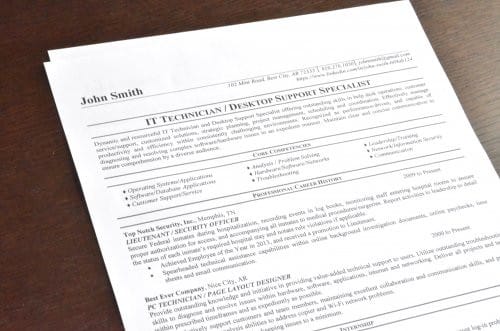
How To Quantify Your Resume (With Examples)

27 Boston Offices That Would Actually Make You Want To Go To Work
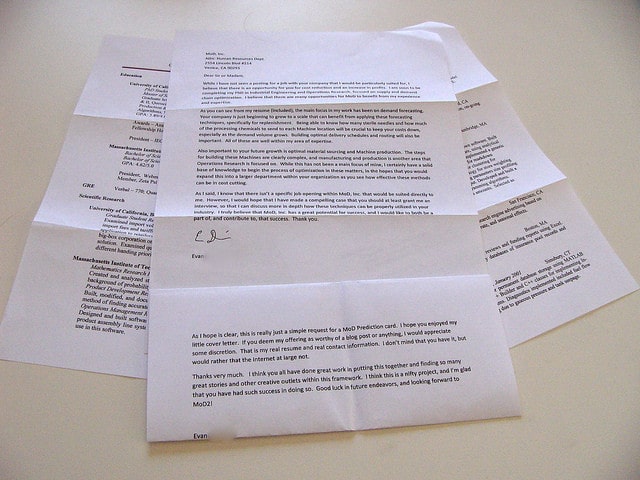
3 Steps To Reject A Job Offer Without Burning Bridges

Resume action verbs to wow employers
- Career Advice >
- Get The Job >
- How To Put Research On Resume Research Experience

IMAGES
COMMENTS
In other words, I am not intending to reference or cite any of my experiences as a source, but rather, I am seeking to use my experiences to essentially add to the research story. For instance, The Blah Blah theory by Smith (2010) suggests A, B, and C.
How to Use Personal Experience in a Research Paper. When you are crafting your easy using your personal experience, ensure you use the first-person narrative. Such a story includes the experiences you had with books, situations, and people. For you to write such a story well, you should find a great topic. That includes thinking of the events ...
%PDF-1.7 %µµµµ 1 0 obj >/Metadata 175 0 R/ViewerPreferences 176 0 R>> endobj 2 0 obj > endobj 3 0 obj >/ExtGState >/ProcSet[/PDF/Text/ImageB/ImageC/ImageI ...
Audio: And before I turn it over for questions, I also wanted to note that I think a paper review, which I don't think was linked on a previous page, but a paper review is a really great resource too when you're using this personal experience and you're not sure if you are telling too much or, you know, if you're being too passionate about your ...
In the eight and a half pages in between, she tells the story of her life. In Callie and Melynda's essays, there is a very clear separation between personal experience, research material, and the writers' commentary on those elements. The weaving, to continue the metaphor, is done in larger blocks of color.
Common Knowledge. Common knowledge is information or ideas that are widely known, accepted, and found in multiple places. Common knowledge is context dependent, meaning that something might be common knowledge to one audience but not another audience. If you are paraphrasing common knowledge, you do not need to cite that statement.
Answer. Personal experiences and knowledge generally do not need to be cited in an APA references page or within the body (in-text citation) of your paper. Personal experience and knowledge is part of your voice; it is what you bring to your paper. If you use personal knowledge that is unusual or to make a statement that someone might question ...
by John McLeod. Using Personal Experience as a Basis for Research: Autoethnography. Autoethnography is quite different from other genres of research, in being based in first-person writing and reflection on personal experience. Carrying out an autoethnographic study not only has the potential to contribute to the research literature - it can ...
I would say that it could be acceptable. It really depends on the context. If you are using it to explain why you became interested in the topic of your thesis, then it could add to the context and depth of the thesis. However, if you use it to support your thesis, I think you should avoid it.
Researching personal experiences is becoming increasingly important as individuals' stories are recognised as important sources of knowledge. Personal experiences can provide unique insights into social, cultural, and historical contexts and highlight the complexities of human experience. By researching personal experiences, we can uncover ...
A personal experience can be included in your research paper as long as it is relevant to the research topic you are working on. The main goal is to ensure that the reader will connect to an event of your own life experience. In this case, putting a personal experience into a research paper requires the use of descriptive language.
Answer. It is very tempting to want to use things that we know based on our own personal experiences in a research paper. However, unless we are considered to be recognized experts on the subject, it is unwise to use our personal experiences as evidence in a research paper. It is better to find outside evidence to support what we know to be ...
If you've never written a cover letter or resume before, don't fret. The Center for Career Development has some great online resources to help you create one from scratch. If you are looking for more individualized help, you can also schedule an appointment to get one-on-one feedback on your application at any stage in the writing process.
Here's an example of an ineffective use of personal experience as evidence: A student is writing an argumentative paper on welfare reform, arguing that there are too many abuses of the system. The student gives an example of a cousin who abuses the system and makes a claim that this is evidence that abuse of the system is widespread.
Personal interviews provide a unique level of specialized information that can really add value to your research paper. By incorporating best practices such as conducting the interview thoughtfully, weaving quotes in seamlessly and citing your source properly, you can bring your paper to the next level of quality and credibility.
There is very little empirical work on the experiences research participants have engaging in qualitative inquiry; yet, qualitative researchers often think of themselves as forging important interpersonal relationships with their participants (Korth, 2002).It seems that the actual experiences of participants in the research process are being taken largely for granted.
A major, life-changing event. Something that you did over and over that was meaningful to you. Your experience and memories of a place that embodies who you are or has meaning for you. A time you were scared but overcame your fear. An ending of a relationship, activity, or event. A beginning of something new.
Use first-person pronouns in APA Style to describe your work as well as your personal reactions. If you are writing a paper by yourself, use the pronoun "I" to refer to yourself.If you are writing a paper with coauthors, use the pronoun "we" to refer yourself and your coauthors together. Referring to yourself in the third person
How to put research on your resume. Follow these steps to add research skills to your resume: 1. Review the job description. Start by reviewing the job description closely and identifying whether the employer is looking for specific types of research skills. Make a list of all of the research-related skills they're looking for in a candidate. 2.
When thinking about how to add it to your resume, you want to consider how the research experience adds to your resume. Your research experience can be included in a few different sections of your resume. Some of those sections include: Academic accomplishments. Research experience. Work experience/history. College activities. Volunteer work